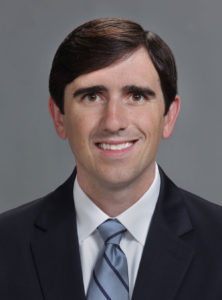Shoulder Surgeon

Are you an athlete who participates in sports that involve throwing overhead? If so, you may be at risk of developing a shoulder injury. Shoulder arthroscopy is an important surgical technique designed to treat an extensive array of shoulder injuries in a minimally invasive way with limited soft tissue damage. Shoulder surgeon, Dr. Robert Boykin performs shoulder arthroscopy for patients in Asheville who have sustained a shoulder injury that requires surgery. Contact Dr. Boykin’s team today!
What is Shoulder Arthroscopy?
Shoulder arthroscopy is a minimally invasive surgical procedure in which the examination and treatment of damage within the shoulder joint is performed though small, surgical incisions. Sometimes called “keyhole” surgery, shoulder arthroscopy uses a tiny camera called an arthroscope that is placed through a small incision in the shoulder. Small, thin surgical instruments are used to examine and repair the tissues inside and around the shoulder joint. Dr. Robert Boykin, shoulder surgeon, has extensive experience in using this minimally invasive technique for patients in Asheville, Arden, Fletcher, Hendersonville and surrounding North Carolina communities who want to return to their active lifestyles, sports and work quickly. Shoulder arthroscopy is the most common procedure that Dr. Boykin performs each year and through which he is able to treat a number of different injuries.
Why is arthroscopic surgery used for joints?
Orthopedic arthroscopic surgery dates back to the 19th century, when a Danish physician first “looked” inside a knee joint without opening it up. In 1931, arthroscopic surgery for the shoulder was performed on a cadaver and 28 years later, Masaki Watanabe developed a sophisticated instrument using optics to see inside the human joint. Watanabe’s instrument was called “No. 21” and became what North American surgeons used to develop their skills in surgical arthroscopy.
Arthroscopic surgery has advanced significantly in the last few decades with proven results such as a quicker recovery time, less chance of infection and less postoperative pain due to the minimally invasive nature of the procedure. Most arthroscopic shoulder procedures take less than two hours to perform and Orthopedic shoulder surgeon, Dr. Robert Boykin typically offers this as an outpatient procedure using a combination of regional and general anesthesia.
What types of injuries can be treated with keyhole shoulder surgery?
Arthroscopic surgery is used to treat a variety of injuries and conditions of the shoulder including:
- Rotator Cuff Tears or Injuries
- Rotator Cuff Patch Augmentation
- Superior Capsular Reconstruction
- SLAP Tears and Labral Tears
- Certain Shoulder Fractures
- Removal of Bone Spurs
- Biceps Tendon Injuries
- Shoulder Separations and AC Joint Injuries
- Shoulder Impingement
- Shoulder instability and dislocated shoulders
What is open surgery?
Open surgery involves using one larger incision to address shoulder pathology rather than multiple small incisions with arthroscopy. Open surgery has a long and proven track record in the shoulder but modern technology has allowed many conditions to be treated with arthroscopy. Whenever possible, shoulder arthroscopy, or minimally invasive shoulder surgery is the preferred method of treatment for Dr. Boykin if surgery is needed. However, certain injuries and procedures are better treated with open surgery. These typically involve extensive fractures requiring placement of hardware, shoulder replacement surgery involving placement of implants that are too large to fit through a keyhole incision, or in complex reconstructive procedures. One larger incision is used for open surgery, instead of a few small incisions and allows Dr. Boykin to correct the problem and insert hardware or implants when needed. Dr. Boykin commonly performs open surgery for the following procedures:
- Anatomic Total Shoulder Replacement Surgery
- Reverse Total Shoulder Replacement Surgery
- Partial Shoulder Replacement Surgery
- Shoulder Resurfacing Surgery
- Clavicle Fracture Fixation
- Proximal Humerus Fracture Fixation / Replacement
How long does it take to recover after shoulder arthroscopy?
Recovery and rehabilitation may be quicker for those treated with minimally invasive arthroscopic procedures. It is important however, to remember that bones, ligaments and tendons take time to heal, whether they are repaired with an open procedure, or arthroscopically. During the recovery and rehabilitation phases, it is important not to reinjure the healing shoulder. It is critical during the healing process to follow the instructions given by Dr. Boykin and his team and the patient specific physical therapy program. Patients recovering from shoulder arthroscopy can expect the following:
- If a nerve block was done prior to the arthroscopic surgery, the anesthetic may keep the arm and shoulder numb for 18-36 hours.
- Pain immediately following surgery is normal. Patients are encouraged to take the prescribed medications as directed, especially in the first two to three days.
- Ice packs or ice machines (available through the office or online) are important and should be used for the first 48 hours following arthroscopic surgery. Patients often find pain relief and continue to use ice for several weeks after surgery.
- Rehabilitation protocols, directly following surgery, must be adhered to for the best possible outcome.
- Swelling, bruising, pain and discomfort are normal in the week following an arthroscopic procedure.
- Time off work will depend on the procedure and duties required for a specific job.
Rehabilitation and physical therapy are key to the success of shoulder arthroscopy. Dr. Robert Boykin will make recommendations about the timing of shoulder and arm exercises, and when to return to normal activities.
For more resources on shoulder arthroscopy, or to determine if you can be treated with arthroscopic surgery, please contact the offices of Dr. Robert Boykin, serving patients in Asheville, Arden, Fletcher, Hendersonville and surrounding North Carolina communities.
